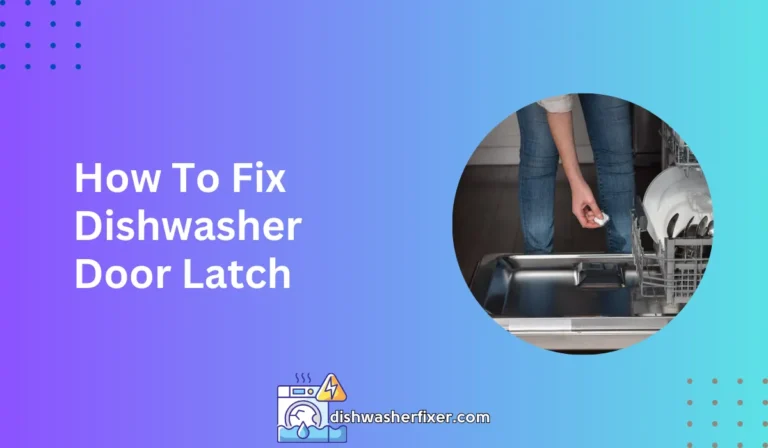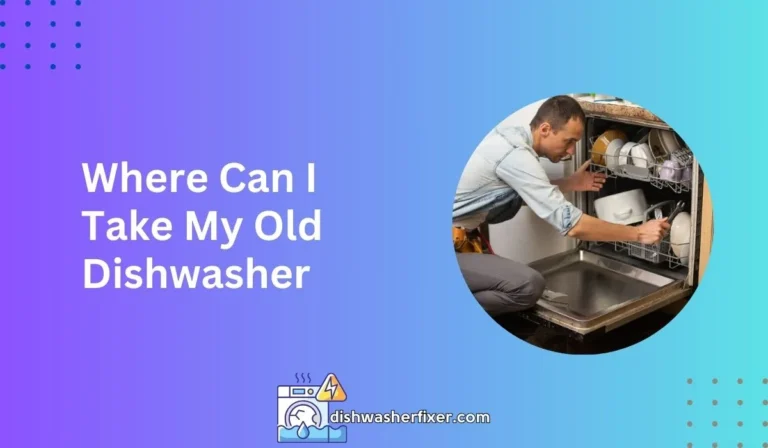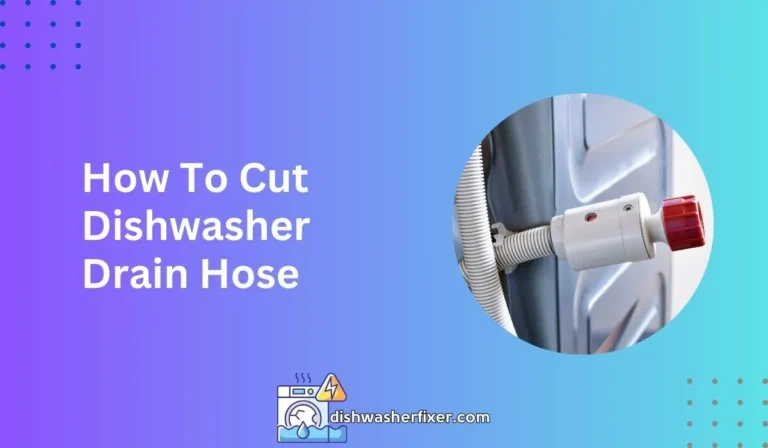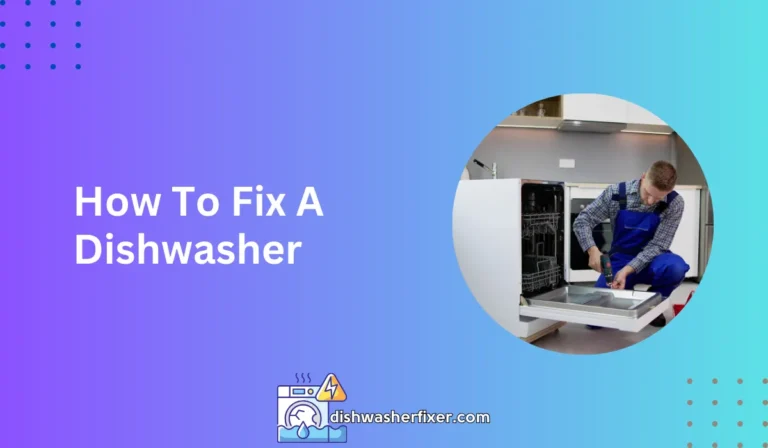Why is My Dishwasher Not Cleaning? Top Fixes Revealed!
A dishwasher may not clean properly if the spray arms are clogged, the filter is dirty, detergent is low-quality or used incorrectly, or if it’s overloaded. Ensure arms and filter are clean, use a recommended detergent, and avoid overloading for better results.
Common Causes of Ineffective Dishwasher Cleaning
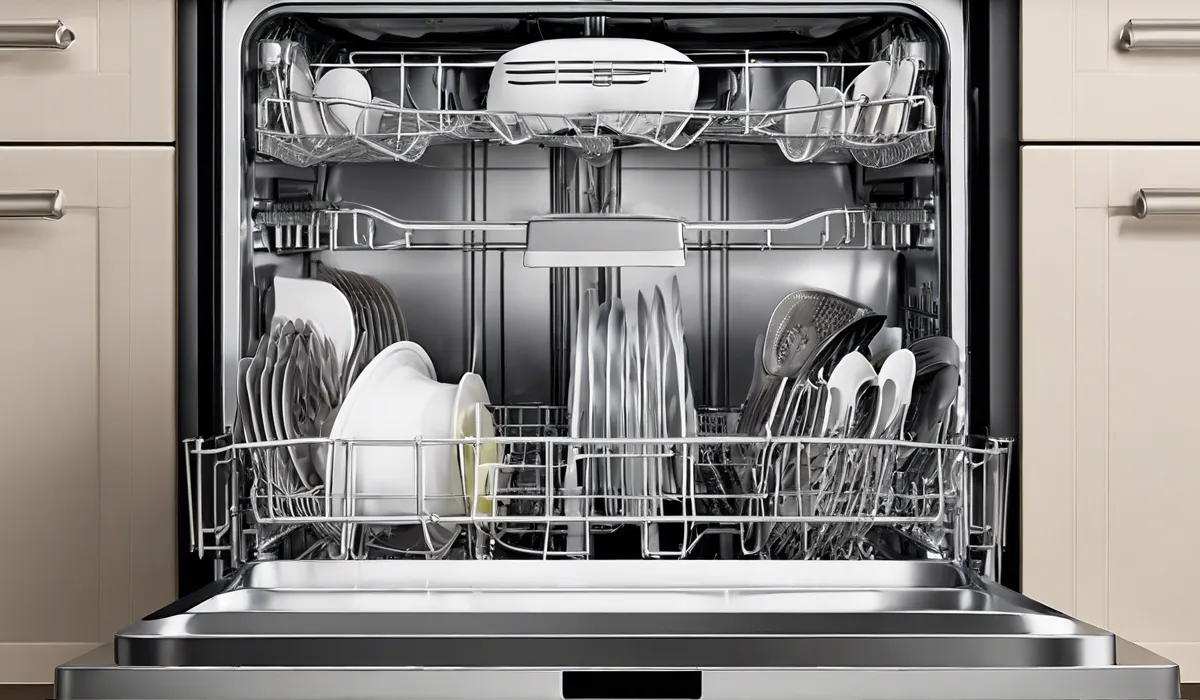
Overloading the Dishwasher
One of the most common mistakes leading to poor dishwasher performance is overloading.
When dishes are packed too tightly, water and detergent cannot circulate effectively, leaving food particles and grime behind. It’s important to leave enough space between items for optimal cleaning.
Improper Loading Practices
Improper loading can result in dishes blocking the spray arms or each other, preventing a thorough clean.
Large items should not obstruct the sprayer’s reach to smaller items, and utensils should be evenly spaced in the silverware basket.
Using the Wrong Type or Amount of Detergent
Using too little detergent can lead to poor cleaning results, while too much can leave a residue.
It is also crucial to use a detergent suitable for dishwashers and to consider the water hardness in your area when determining the amount to use.
Hard Water and Mineral Buildup
Hard water contains minerals that can deposit on dishes and the interior of the dishwasher, causing spots and films. Over time, these deposits can clog the spray arms and reduce cleaning efficiency.
Blocked Spray Arms and Filters
Food particles and debris can block spray arm nozzles and filters, leading to poor water flow and cleaning. Regular inspection and cleaning are necessary to maintain optimal performance.
Cold Water Entering the Dishwasher
Dishwashers require hot water to effectively dissolve and remove grease and grime. If the water entering the dishwasher is too cold, it may not clean as well.
Outdated or Worn-Out Dishwashers
Over time, dishwashers can wear out, with vital components such as the heating element or pump degrading, leading to less effective cleaning and the potential need for replacement.
Troubleshooting and Maintenance Tips
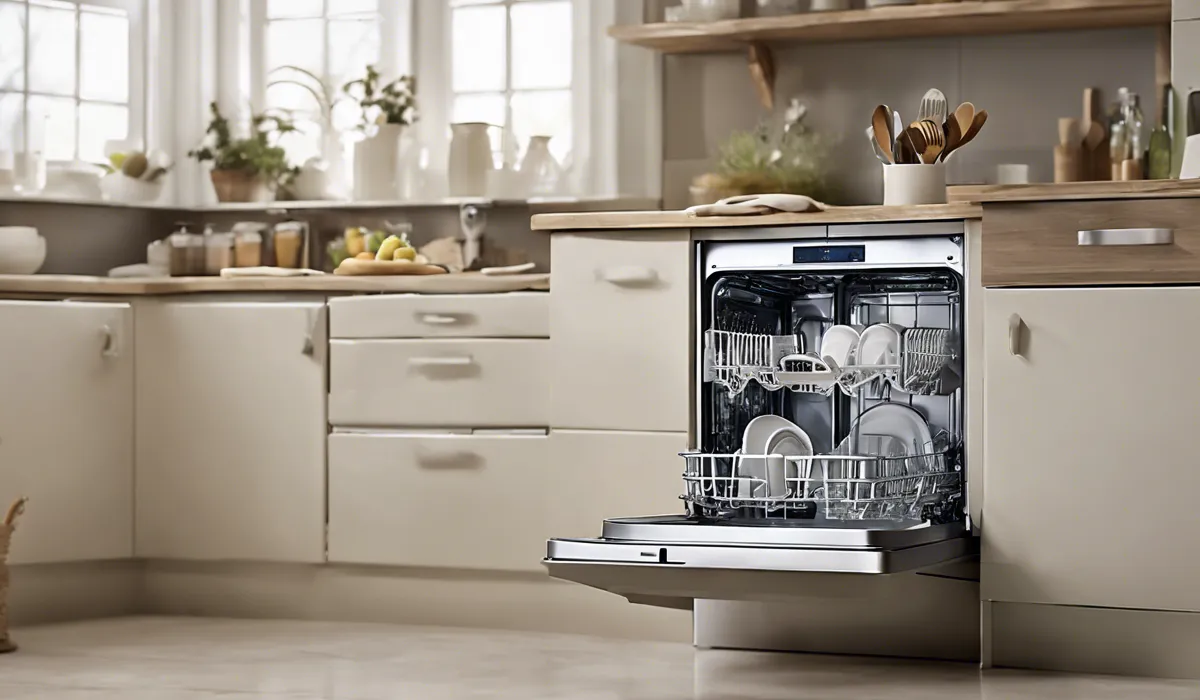
Checking and Cleaning Spray Arm Nozzles
Regularly inspect spray arms for clogs and clean them with a toothpick or small brush to ensure water can flow freely, resulting in better cleaning coverage.
Inspecting and Cleaning the Dishwasher Filter
A dirty filter can impede water flow and cause recirculation of food particles. Cleaning the filter according to the manufacturer’s instructions is a vital step in maintenance.
Running a Cleaning Cycle with a Dishwasher Cleaner
Using a specialized dishwasher cleaner can help remove grease and limescale buildup that normal cycles may not address, improving overall cleaning power.
Ensuring Proper Loading Techniques for Dishes
Following the manufacturer’s guidelines for loading can make a significant difference in cleaning effectiveness. Proper placement ensures all surfaces are exposed to water and detergent.
Verifying Dishwasher Settings and Cycle Selection
Choosing the appropriate cycle and settings for the load can enhance cleaning results. Heavy-duty cycles are best for pots and pans, while a lighter wash may suffice for glasses and lightly soiled items.
Examining Detergent Usage and Exploring Water Softening Options
Ensuring proper detergent usage and considering water softeners if you have hard water can prevent mineral buildup and ensure detergent effectiveness.
Testing Water Temperature and Heating Element Functionality
Water should enter the dishwasher at the correct temperature, typically around 120°F. If it is not, checking the heating element and water heater settings may be necessary.
When to Seek Professional Help

Persistent Problems After Troubleshooting and Maintenance
If issues persist despite thorough cleaning and maintenance, it may be time to seek professional help to diagnose deeper problems.
Identifying Issues with the Dishwasher’s Pump or Motor
Problems with the pump or motor are often complex and require a skilled technician to repair or replace the affected parts.
Electrical Problems or Error Codes Displayed
If your dishwasher displays error codes or has electrical issues, professional assessment is necessary to prevent further damage or safety risks.
Water Drainage Issues or Leaks
Drainage problems or leaks can indicate a blockage or failure in the system, which might require professional intervention to fix properly.
Warranty Considerations and Professional Service Benefits
Check your warranty before attempting repairs, as professional servicing may be covered and can ensure the job is done correctly without voiding any agreements.
The Cost-Benefit Analysis of Repairing Versus Replacing a Dishwasher
When facing expensive repairs, consider the age and condition of your dishwasher. Sometimes, investing in a new energy-efficient model may be more cost-effective in the long run.
FAQs About Dishwasher Cleaning Issues
Why are my dishes still dirty after running the dishwasher?
This could be due to clogged spray arms, a dirty filter, using low-quality detergent, incorrect detergent usage, or overloading the dishwasher. Ensuring proper maintenance and operation can improve cleaning results.
How can I tell if my dishwasher’s spray arms are clogged?
You may notice that dishes are not being cleaned properly, or you can visually inspect the spray arms for food particles or mineral buildup blocking the holes.
What is the best way to clean my dishwasher’s filter?
Consult your dishwasher’s manual for specific instructions, but generally, you can remove the filter, rinse it under running water, and gently scrub it with a soft brush to remove debris.
Does the type of detergent affect how well my dishwasher cleans?
Yes, using a high-quality detergent recommended by the dishwasher manufacturer can lead to better cleaning results compared to low-quality or improperly used detergents.
Can overloading the dishwasher cause it to clean less effectively?
Yes, overloading can prevent the spray arms from reaching all dishes, leading to poor cleaning performance. It’s important to load the dishwasher according to the manufacturer’s guidelines.
Final Thoughts
For a dishwasher to clean effectively, ensure spray arms are unobstructed and the filter is free of debris. Choosing a high-quality detergent and using it as directed can significantly improve cleaning performance.
Additionally, refrain from overloading the dishwasher to allow water and detergent to circulate properly, reaching every dish for optimal cleanliness.

